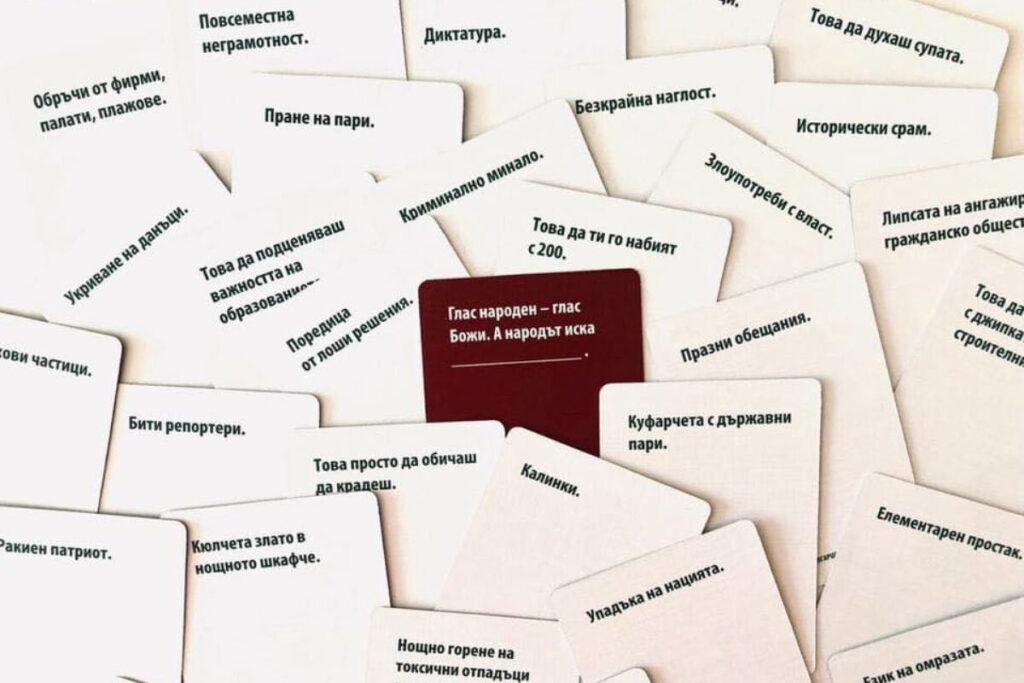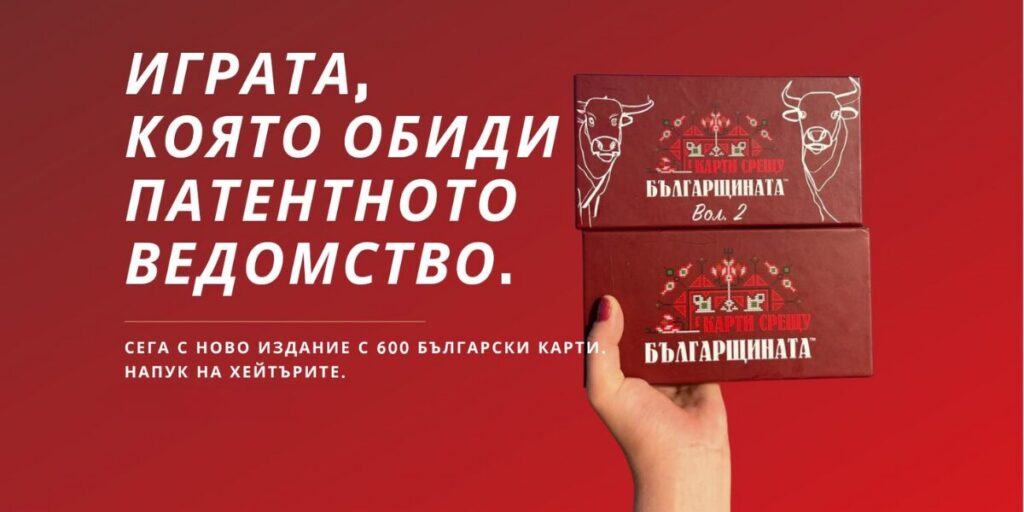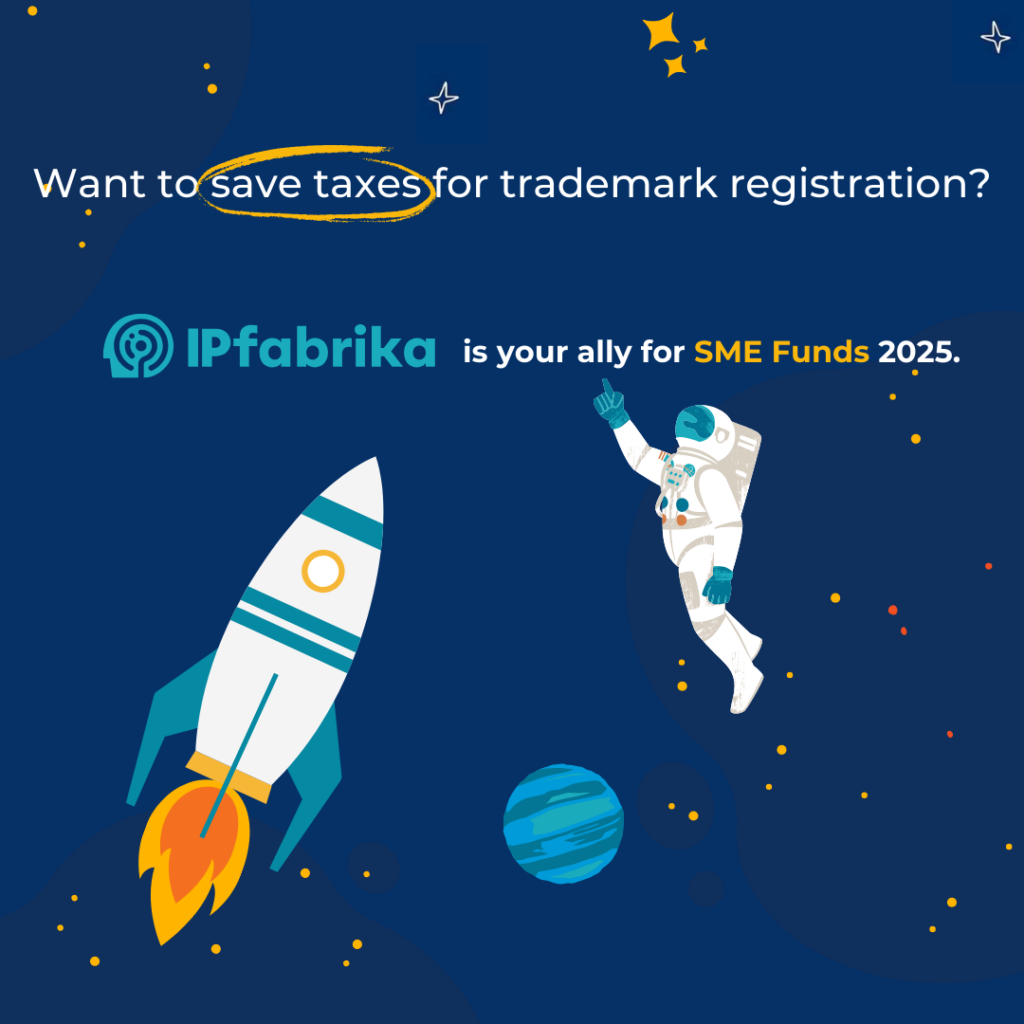One of the most interesting cases in the practice of IP Fabrika involves the attempt to register the trademark “Cards against Bulgariness” This case spanned nearly three years and, unfortunately, ended with the refusal of the Patent Office of the Republic of Bulgaria to register the trademark. The refusal was based on Article 11, Paragraph 1, Item 6 of the Law on Trademarks and Geographical Indications (ZMGO), which states that a trademark cannot be registered if it is contrary to public order or good morals.
The Patent Office concluded that the phrase “against Bulgaria” violates generally accepted standards of decency and respect. According to the Office, “Bulgariness” is a collective term used to represent the qualities, customs, and characteristics of the Bulgarian people.

“Cards vs. Bulgariness” is a party game for adults where participants compete to be the funniest. It was developed by “Creative Wit U” OOD.
This decision by the Patent Office was appealed by IPfabrika to the Administrative Court of Sofia City (ACSG), initiating administrative case No. 5651/2022. As part of the proceedings, two forensic-linguistic examinations were conducted to determine whether the word “Bulgaria” could be used in a negative context.
The first examination categorically rejected this idea, relying solely on the latest official editions of the Interpretive Dictionary of Bulgaria from 1994 and 2012. The expert based their conclusions on examples of how “Bulgariness” has historically been used, primarily during the Renaissance and the early 20th century, when its meaning was overwhelmingly positive and aligned with national identity.
Both the first and second examinations concluded that “Bulgariness” could only be interpreted according to the dictionary definitions and that any other usage was rare. However, neither examination sufficiently addressed our questions concerning the evolving nature of the Bulgarian language and whether dictionary norms should be the sole basis for interpreting a word’s meaning. We provided numerous examples of “Bulgariness” used in different contexts across various reputable publications, but these were not considered.
The ACSG ultimately upheld the Patent Office’s decision, stating that the “Cards against Bulgariness” trademark would “create an unpleasant and offensive association in every reasonable member of Bulgarian society with average sensitivity, perceiving it as an affront to Bulgarian traditions, history, and customs.”
IP Fabrika appealed this decision to the Supreme Administrative Court (SAC), initiating cassation administrative case No. 10969/2023. We requested the admission of a judicial trademark examination to assess the perception of the “Cards against Bulgaria” mark by an average reasonable consumer. However, the court denied this request.
In our appeal, we highlighted several trademarks registered by the European Patent Office (EUIPO) that could be considered offensive, such as “Screw you,” and “De puta Madre.” The EUIPO considers the target audience’s perspective and does not rely solely on the average consumer’s receptivity in society at large. It emphasizes the importance of understanding the intended consumers of the brand.
Another argument raised, based on the trademark and design guidelines of the EUIPO, was that the specific goods and services for which the mark is filed should also be taken into account.
Despite presenting substantial evidence, including increased sales of the “Cards against Bulgariness” game and organized public lectures and discussions featuring the game’s creators, the court upheld the ACSG’s decision, thereby confirming the Patent Office’s refusal to register the trademark. The Supreme Court concluded that registering the word mark would not only undermine society’s moral foundations but also violate the principles of public order and legality.
Despite the extensive evidence, expert analyses, and procedural efforts, the word mark “Cards against Bulgariness” did not gain legal protection in Bulgaria. This case raises numerous questions about the interpretation and application of trademark law.






